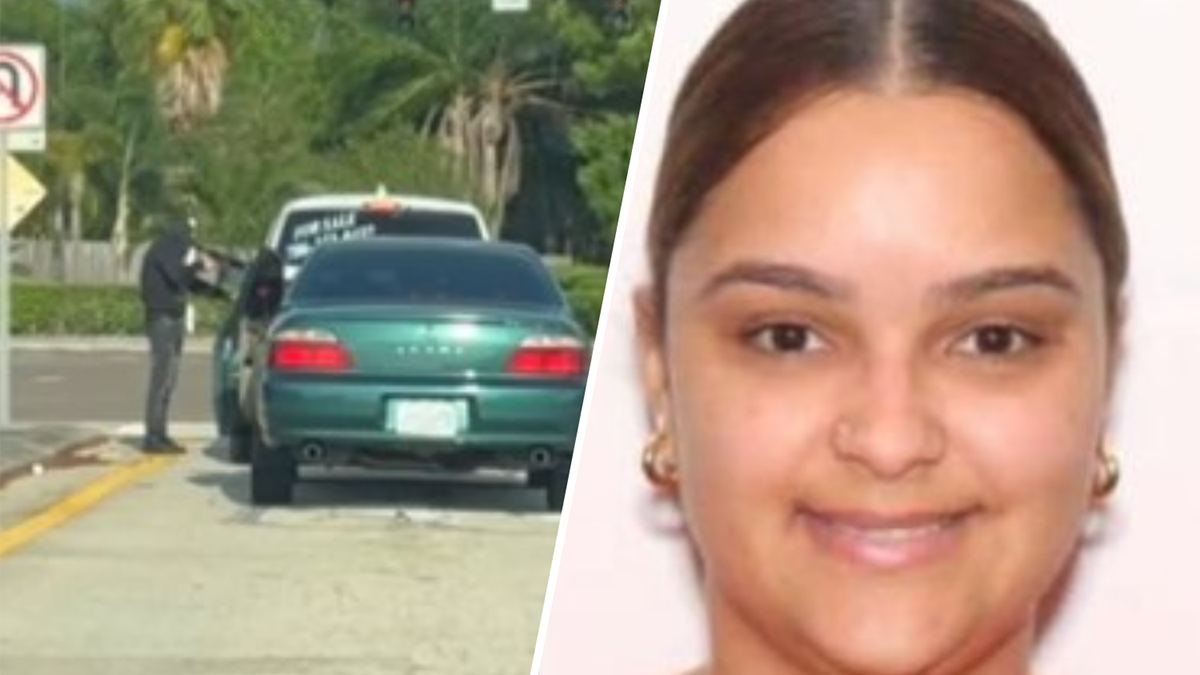Dealing another victory to the Seminole Tribe of Florida, a federal appeals court has denied a request from pari-mutuel owners for a rehearing after a ruling that upheld a multibillion-dollar deal giving the tribe control over sports betting throughout the state.
A three-judge panel of the U.S. Circuit Court of Appeals for the District of Columbia in June reversed a November 2021 decision by a federal judge who halted the gambling agreement.
Owners of Magic City Casino in Miami-Dade County and Bonita Springs Poker Room in Southwest Florida, who challenged the sports-betting plan, asked the full appeals court for a rehearing, what is known as seeking an "en banc" hearing.
But the court rejected the request Monday without a detailed explanation.
Get South Florida local news, weather forecasts and entertainment stories to your inbox. Sign up for NBC South Florida newsletters.
Gov. Ron DeSantis and Seminole Tribe of Florida Chairman Marcellus Osceola in 2021 signed a 30-year gambling deal that included giving the tribe control of sports betting. After the deal was ratified by the Legislature, the Magic City and Bonita Springs pari-mutuel owners filed a lawsuit alleging the sports-betting plan violated federal law and would cause a "significant and potentially devastating impact" on their operations.
The deal included a "hub-and-spoke" sports-betting plan designed to allow gamblers anywhere in the state to place bets online, with the bets run through computer servers on tribal property. The deal, known as a compact, said bets "using a mobile app or other electronic device, shall be deemed to be exclusively conducted by the tribe."
In November 2021, U.S. District Judge Dabney Friedrich ruled that the plan ran afoul of the federal Indian Gaming Regulatory Act, which regulates gambling on tribal lands, because the deal would allow gambling off property owned by the Seminoles.
Local
Friedrich, calling the setup a "fiction," also invalidated other parts of the compact, finding that U.S. Interior Secretary Deb Haaland was wrong when she allowed the deal to go into effect. The Department of the Interior, which oversees tribal gambling, appealed the decision.
The three-judge panel’s unanimous ruling in June said the Washington, D.C.-based district judge erred when she found that the compact violated the federal law, known as IGRA, because it authorized gambling "both on and off" Indian lands.
The impact of Monday’s ruling on sports betting in Florida was not immediately clear.
The Seminoles briefly rolled out the Hard Rock SportsBook mobile app amid the legal wrangling but stopped accepting wagers and deposits on the app in December 2021 following Friedrich’s ruling.
Gary Bitner, a spokesman for the Seminoles, said Tuesday the tribe was "pleased" with the appeals court’s decision not to grant the en banc hearing. But the Seminoles did not comment on whether they planned to start accepting bets again on the app.
Also, it was not clear if the pari-mutuels would ask the U.S. Supreme Court to take up the issue.
Along with giving the Seminoles control over online sports betting, the compact allowed the tribe to offer craps and roulette at its casinos. Also, the deal would allow the Seminoles to add three casinos on tribal property in Broward County.
In exchange, the tribe pledged to pay the state a minimum of $2.5 billion over the first five years and possibly billions of dollars more throughout the three-decade pact. The deal also added Florida to numerous states that jumped into sports betting after a 2018 U.S. Supreme Court ruling that cleared the way for such wagering in New Jersey.
Daniel Wallach, an attorney who specializes in gambling law, said the ruling in the Florida compact challenge "checks at least three of the boxes indicative" of a Supreme Court review. The decision is "in conflict" with rulings from other federal appellate courts, is "arguably in conflict with the Supreme Court’s own precedent," and it involves an "important question of federal law that has not been, but should be settled," by the Supreme Court.
The ruling in the Florida case "is in conflict with at least eight federal appeals court decisions from other circuits declaring that" the Indian Gaming Regulatory Act "has no application to off-reservation tribal gaming activities," Wallach told The News Service of Florida on Tuesday.
"This is obviously an important question of federal law, as it affects relationships between tribes and state and local governments across the country. It also impacts non-tribal gaming operators since tribal control of statewide remote wagering would dramatically alter the competitive landscape for digital gaming," he said.
The court will need to resolve the issue "sooner or later," Wallach added.
"Therefore, it would make sense for the Supreme Court to address this issue now and bring much needed clarity to the divisive question of whether IGRA’s reach extends to tribal-regulated gaming activities outside of Indian lands, rather than let the issue further devolve into a maze of conflicting and contradictory federal court rulings," he said.
Some critics of the compact also have argued that the sports-betting arrangement would not comply with a 2018 constitutional amendment that requires statewide voter approval of gambling expansions in Florida. Under what is known as Amendment 3, expansions of gambling must be placed on the statewide ballot through the citizens’ initiative process.



